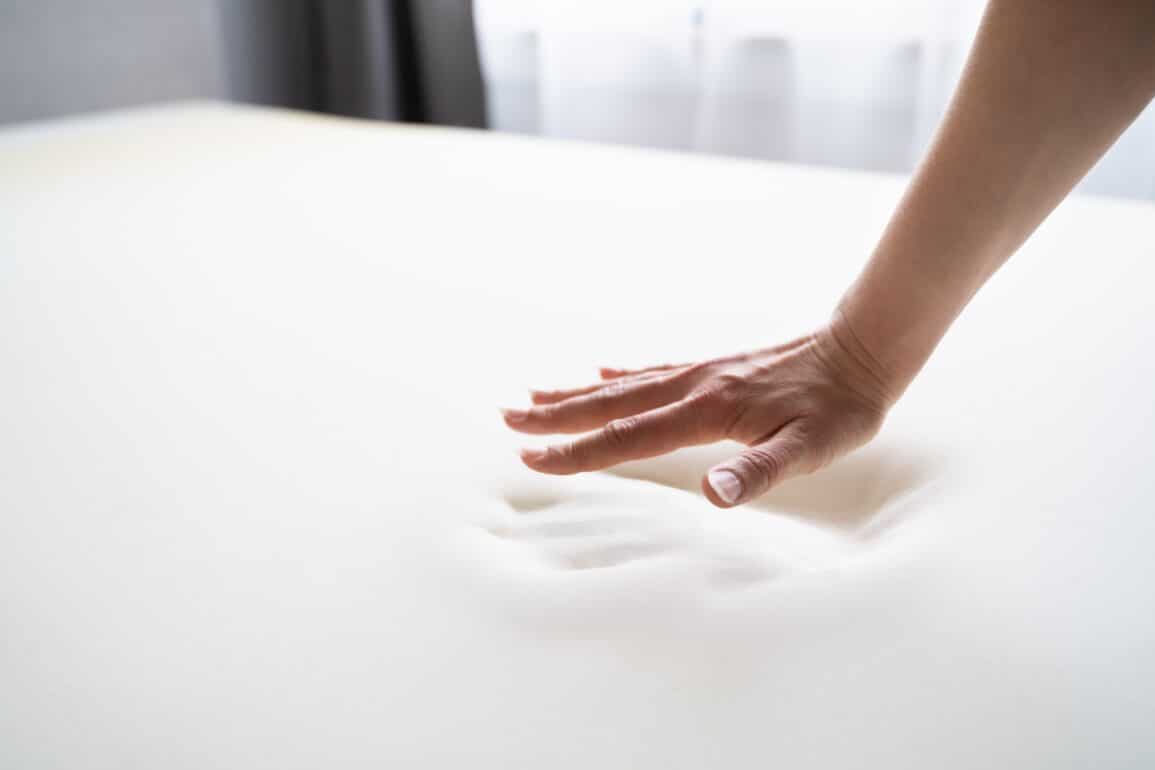Trying to decide between a firm or soft mattress?
You’re not alone. Shopping for the perfect mattress can be a tiring experience, even if you have a general idea of your sleeping preferences.
Not only do you need to make the decision between spring-based beds, memory foam, and beyond, but you also need to determine whether firm or soft is best.
Knowing how to separate firm mattress and soft mattress options ensures you can access the widest range of benefits for your back, posture, and sleep pattern.
Today, we’re going to explore one of the biggest debates in bedding history.
Firm vs soft mattress: Which is better?
Is it better to have a soft or firm mattress?
As you might imagine, most people have different predilections when it comes to mattresses. Most of the time, these preferences start when you’re young, and develop through your life.
If you’re used to sleeping on a soft mattress, then you’re probably going to choose the same sensation again in the future. However, this doesn’t mean a firm mattress wouldn’t be right for you.
Bedding companies use a scale of 1-10 to separate a hard mattress from a soft alternative.
Anything below 6, or 6.5 is usually on the softer end of the scale, while anything above 6.5 is more likely to be quite firm. Crucially, the firmness of your mattress can change over time. As you expose the materials to your weight, they’ll gradually lose some of their supportive properties.
It’s also worth noting the type of mattress can help you to determine whether it’s going to be softer, or firmer. Memory foam, like the Nectar memory foam mattress, would be softer than a spring mattress. Hybrid mattress options give you a combination of both worlds.
Is a firm mattress good for your back? Pros and cons
Let’s start by looking at the firm mattress. A common choice among people with back and posture problems. A hard mattress can improve the quality of your sleep by encouraging a more neutral spine position.
In a soft mattress, you’ll sink into the cushioning around you, meaning your spine is more likely to bend. A firm mattress is more supportive and holds your body in the perfect position.
With a firm mattress, you automatically get more back support. However, it’s not always the best option for back pain.
Doctors used to recommend using a firm mattress for all kinds of back pain. However, a study of 268 people found people who slept on very firm mattress with lower back pain, had the worst sleep quality.
A firm mattress might be beneficial for aches and pains, but you’ll need to ensure it’s not too firm. Here are some of the other advantages of a hard mattress:
- You sleep on top of the bed, which makes overheating less likely
- They reduce the pressure on your circulation for better blood flow
- A firm mattress supports the use of props like body pillows
Unfortunately, there are some downsides to firm mattresses too. For instance, while they’re great for back support, they’re not ideal for pressure relief.
If you suffer from joint pain, then firm materials won’t reduce the pressure on your joins. A hard mattress also takes longer to get used to, if you’re familiar with softer beds.
Firm mattress options can also lose their firmness over time, which means you’ll need to frequently update your bed.

Is a soft mattress bad for your back? Pros and cons
As mentioned above, although a firm mattress is often recommended for back problems, this doesn’t make soft mattresses a bad choice for back issues.
Soft mattresses can reduce back pain for some individuals, particularly if you have a lot of pain around your shoulders and upper back.
If you have shoulder pain and sleep on your side, it’s hard to find the perfect position on a firm mattress.
On a soft mattress, your shoulders, and other pressure points will sink into the material. In the decision between a plush vs firm mattress for back pain, think about the kind of discomfort you have.
Soft mattresses are better suited to people who frequently sleep on their side, and you can also enjoy a “cozier” experience, like you’re sleeping in the bed.
A soft mattress has fewer issues with motion transfer if you sleep with a partner, and you can update its softness by adding a mattress topper.
Other advantages of a soft mattress include:
- Slimmer and lighter people often get a great combination of comfort and support
- Memory foam and soft mattress options are great for couples
- It is possible to get mattress which combine soft and firm components
Unfortunately, soft mattresses can also push your spine out of alignment, reducing sleep quality if you have posture issues.
Many soft mattresses also grow softer over time, requiring the use of a mattress topper, and these products can be quite expensive.
Firm vs soft mattress options: When to go firm
Firm mattress options are better suited to stomach and back sleepers. If you sleep on your stomach, your hard mattress will give you more support under your hips and improve spinal alignment.
If you sleep on your back, a firm mattress which allows for some hip sinkage will give you a great night’s sleep.
Larger people with more weight also tend to prefer a firm mattress, because it offers a lot more support. A soft mattress would cause your weight to sink through the bed onto the frame below.
Even if you’re a lighter person, a harder mattress will give you the experience of sleeping “on” your mattress, instead of in it, which is more appealing to some.
People who sleep hot also benefit from a hard mattress. In the argument of plush vs firm mattress choices, softer mattresses often stand out as the ones that cause more sweating and overheating.
Soft mattresses like memory foam trap heat and make it hard to stay cool. Make sure you have a waterproof mattress protector if you’re using memory foam.
In some cases, people with mobility issues also benefit from a firm mattress. Firm products make it much easier to change positions and get either into or out of your bed.
Plush vs firm mattress choice: When to go soft
If you sleep on your side, or curled up in the fetal position, a soft mattress is easily the best choice. Side sleepers can reduce pressure on their shoulders and hips by sinking into the bed. People with pain issues connected to their joints also benefit heavily from this kind of mattress.
If you like the idea of sleeping surrounded by comfort, a soft mattress is the solution for you. Sleeping on memory foam can feel like being wrapped in a hug. If you add a memory foam topper to the mix, you can get even more soft comfort.
Couples will also generally benefit more from a soft mattress. Softer beds, particularly those made with memory foam, will handle motion transfer a lot better.
When you move around on a spring mattress, your partner feels everything you do. On the other hand, memory foam absorbs the motion. This means you won’t disturb your other half.

Soft vs firm mattress FAQ
Still not certain? Let’s answer a few questions.
Is a firm mattress good for your back?
A firm mattress can be good for your back, however, the connection between your mattress and back pain can be more complex than you think. Hard mattresses can cause discomfort around the joints, but they also provide excellent support.
Most experts recommend using a medium-firm option for back problems. Test out a few different mattress products to see which works best.
How can you make a firm mattress softer?
If you need to know how to make a hard mattress softer after you buy something too firm, don’t panic. There are plenty of mattress topper options you can explore today. Plus, it’s worth remembering a firm mattress will usually lose some of its softness naturally too.
What mattress is best for each kind of sleeping?
When making the decision between a firm or soft mattress, the most important thing you can do is consider your sleeping patterns.
Side sleepers will appreciate the softness of a softer mattress. People who sleep on their stomach will need the support of a firm mattress. If you sleep on your back, or move between positions during the night, you might want a mid-firm solution.
Soft vs firm mattress: which is best?
There’s no one-size-fits-all answer to whether a firm or soft mattress is better for your needs. Ultimately, you’ll need to try out some different beds and decide for yourself which feels most comfortable.
You could also consider speaking to a doctor if you want to ensure you’re getting the right kind of bed for any conditions you have.
Just because you’ve been using soft or firm mattresses for most of your life doesn’t mean you should stick with them. Sometimes, changing up your mattress can be the best thing to do.
Siestio. Sleep matters.
General advice disclaimer
This article contains general tips and advice. However, no diet or exercise program should be started without consulting your physician or other industry professional first. For more information read our full disclaimer here.







